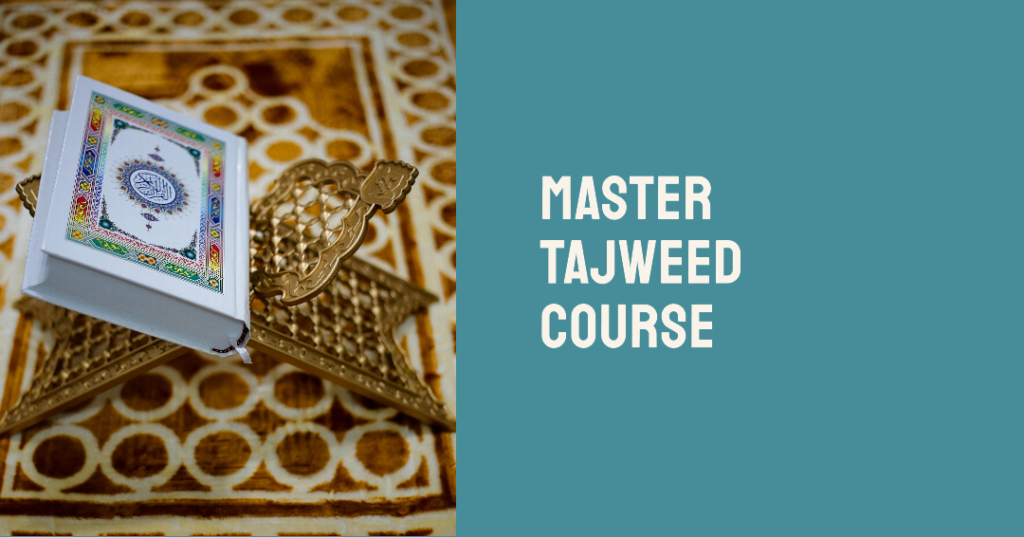Tajweed
Introduction
Tajweed, often associated with the Quran, is a vital aspect of Islamic recitation. In this article, we will delve into the intricacies of tajweed, including its rules, meanings, and the options for tajweed classes and online courses. Join us on this journey of understanding and mastering tajweed.

Tajweed: A Closer Look
Tajweed Meaning
Tajweed, in Arabic, means ‘to make better’ or ‘to improve.’ In the context of Quranic recitation, it refers to the art of pronouncing the words and verses of the Quran with precision and clarity.
What is Tajweed?
Tajweed is the set of rules that govern the proper pronunciation of Arabic letters and words in the Quran. It ensures that the recitation remains faithful to the original text, preserving both its meaning and musicality.
Tajweed Rules: The Foundation
Tajweed rules are the cornerstone of mastering Quranic recitation. Here are some essential tajweed rules you need to know:
1. Proper Letter Articulation
Accurate pronunciation of Arabic letters is crucial for tajweed. Each letter has a unique articulation point and characteristics that must be observed.
2. Ghunnah (Nasalization)
Tajweed includes nasalizing certain letters, known as ghunnah. This rule adds a melodic quality to the recitation.
3. Lengthening (Madd)
Tajweed defines rules for lengthening specific letters, enhancing the rhythm and melody of Quranic verses.
4. Silent Letters (Sukun)
Understanding when to pause or elongate silent letters is vital for proper tajweed.
5. Rules of Stops (Waqf)
Tajweed provides guidelines on pausing and stopping at specific points in the Quran.
Tajweed Quran: Its Significance
The Quran, as the holy book of Islam, holds immense significance. Tajweed ensures that the Quran is recited with the respect and accuracy it deserves. Each recitation becomes a melodious and spiritually enriching experience.
Tajweed Online Course: A Modern Approach
In today’s digital age, tajweed education has gone online. Tajweed online courses provide flexibility and convenience for learners worldwide. Here’s why you should consider them:
1. Anytime, Anywhere Learning
Online courses allow you to learn at your own pace, fitting into your schedule.
2. Diverse Course Options
You can choose from a variety of online courses, catering to different levels of expertise.
3. Interactive Resources
Online courses often include multimedia resources, making learning engaging and dynamic.
The Beauty of Tajweed
Tajweed, often described as the adornment of Quranic recitation, goes beyond mere pronunciation. It is an art that brings out the beauty and spiritual depth of the Quran. Through the precise application of tajweed rules, reciters can convey the intended meanings and emotions contained within the verses.
The Spiritual Connection
Tajweed isn’t just about perfecting pronunciation; it’s about forging a profound spiritual connection with the Quran. When reciting with tajweed, individuals often experience a sense of tranquility, mindfulness, and closeness to the Divine. It transforms the act of recitation into a deeply personal and spiritual journey.
The Tajweed Experts
Mastery of tajweed requires guidance from knowledgeable experts who can unravel its complexities. Tajweed instructors possess a deep understanding of the Quranic text and its intricacies. They play a pivotal role in shaping the reciter’s skills and fostering a deeper appreciation for the Quran.
The Role of Tajweed Instructors
Tajweed instructors serve as mentors, guiding students through the rules and nuances of tajweed. Their expertise ensures that students not only learn the rules but also grasp their practical application. They provide corrections, encouragement, and personalized feedback, helping students refine their recitation.
The Impact of Tajweed
The impact of tajweed extends far beyond the realm of religious practice. It influences various aspects of an individual’s life, fostering personal growth and development.
Improved Communication Skills
The precision and clarity demanded by tajweed rules enhance not only Quranic recitation but also communication skills. Students often find that their articulation and pronunciation in everyday speech improve significantly.
Increased Patience and Discipline
Mastering tajweed is no easy feat. It requires dedication, patience, and discipline. As students work diligently to perfect their recitation, they develop these qualities, which can be applied to various areas of life.
Community and Unity
Tajweed classes and online courses bring together individuals from diverse backgrounds and cultures. This sense of community and shared purpose fosters unity and understanding among students, transcending geographical and cultural boundaries.
Conclusion
Tajweed is more than just a set of rules; it’s a beautiful art that elevates Quranic recitation. Whether you choose traditional classes or opt for the flexibility of online courses, your journey to mastering tajweed is a noble and rewarding pursuit. Explore, practice, and let tajweed enrich your connection with the Quran.
FAQs
1-Can I learn tajweed on my own?
A: While self-study is possible, tajweed classes or online courses provide structured guidance, which is highly beneficial.
2- Are tajweed rules the same for all Arabic dialects?
A: Yes, tajweed rules are consistent across all Arabic dialects to maintain Quranic authenticity.
3-How long does it take to become proficient in tajweed?
A: The time required varies, but regular practice and dedication are key to proficiency.
4-Are online tajweed courses as effective as in-person classes?
Yes, many online courses offer quality instruction and interactive features, making them equally effective.
5- Is tajweed only about pronunciation?
Tajweed encompasses pronunciation, rhythm, and proper delivery to enhance Quranic recitation.
6- Can tajweed be applied to other Arabic texts?
While tajweed’s primary focus is the Quran, its principles can be applied to other Arabic texts for clarity.



